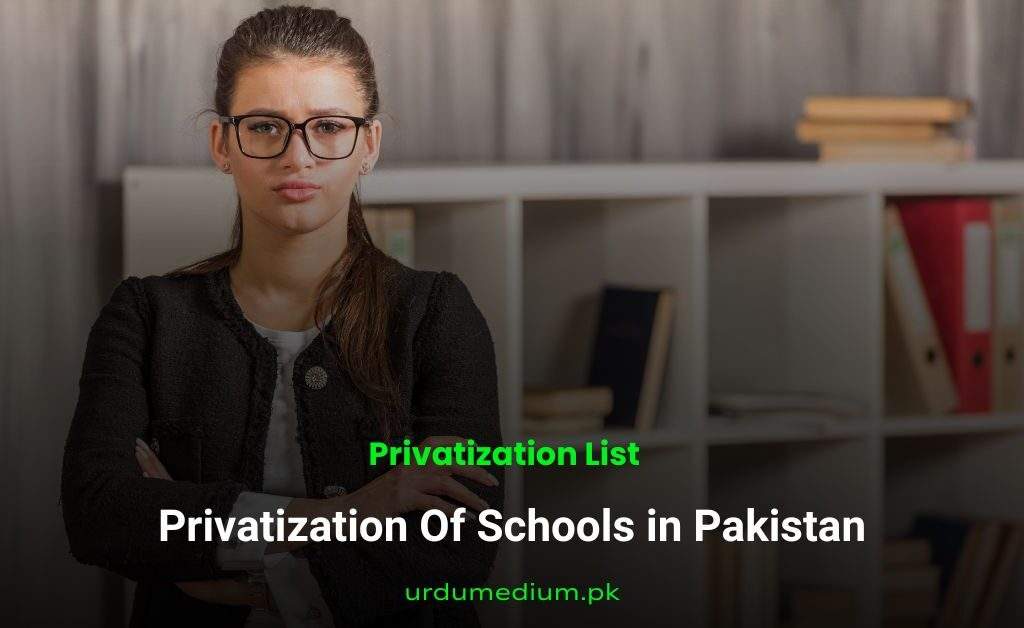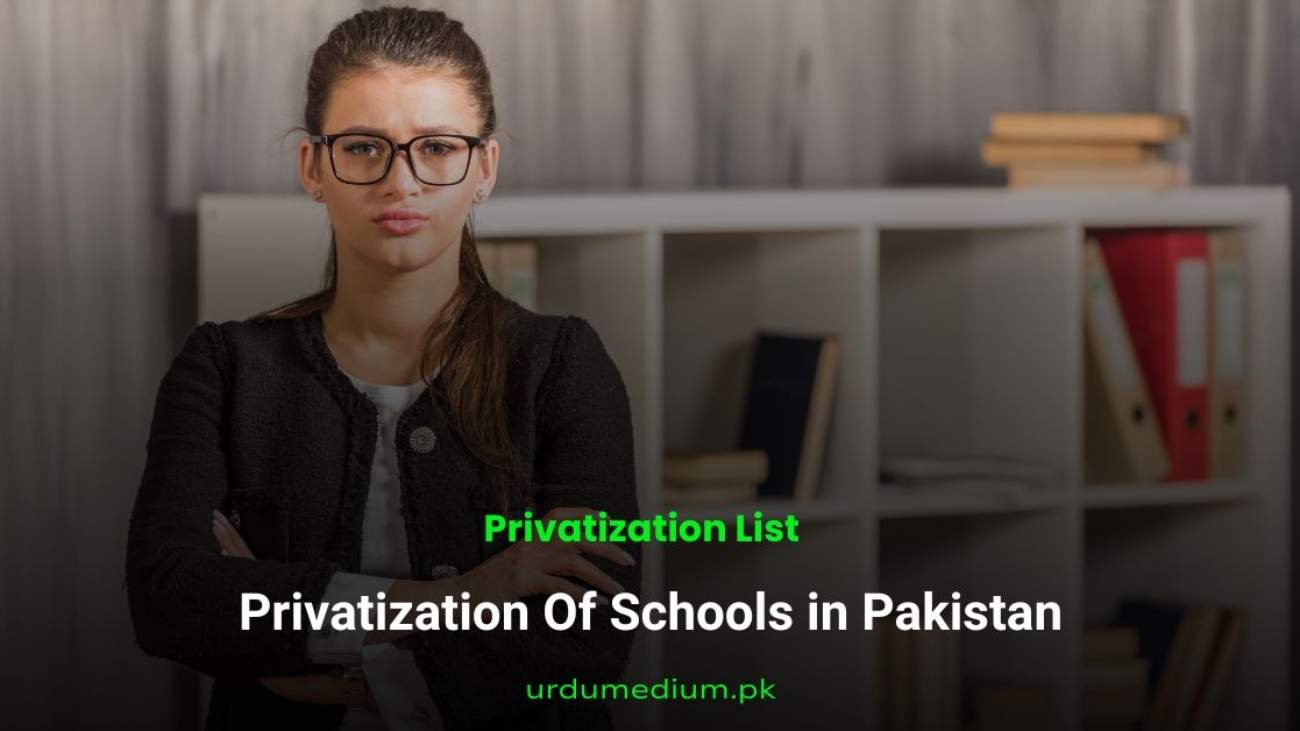The Punjab School Education Department announced the privatization of over 11,000 public schools. Teachers in Punjab expressed strong opposition and organized protests against the government’s decision.
Teachers and the public are protesting the privatization, citing concerns about the potential consequences, including increased fees, reduced accessibility, and a decline in the quality of education.
Now, let’s explore the begining of this crisis, government justification for this move, and potential implications of this intitiative for teacher, students and common people across Pakistan.
Recommended Reading: Shahid Afridi Launches 10Z Sports Drink: A New Player In The Market
Privatization Of Schools In Pakistan | Schools Privatization List

The Privatization Process
- During the privatization process, all school assets, including buildings, playgrounds, and infrastructure, will be handed over to designated organizations.
- Rawalpindi division is the first to undergo this process, affecting 1,134 schools in the region.
- The privatization will be implemented in four districts: Rawalpindi, Attock, Chakwal, and Jhelum.
- The decision to entrust the schools to the non-governmental organization (NGO), Muslim Hands Pakistan, has been made by the government.
Rawalpindi District’s Fate
- According to the Punjab Education Department, Rawalpindi district alone will see the privatization of 376 schools.
- The nearby districts also face significant changes, with 264 schools in Attock, 353 in Jhelum, and 141 in Chakwal set for privatization.
The Wider Impact
- Beyond Rawalpindi, the privatization extends to other districts in Punjab. Lahore will see 657 schools privatized, Faisalabad 910, Gujranwala 434, and Multan 317.
- Across all 36 districts in Punjab, an estimated 300 to 600 schools have been chosen for privatization.
The Backlash
- Teachers and education advocates across Punjab have strongly opposed the government’s decision to privatize public schools, labeling it as cruel and inhumane.
- Concerns are raised about the potential consequences of privatization, including increased fees, reduced accessibility, and a decline in the quality of education.
- Protests have erupted across the province, demanding the government to reconsider its actions and prioritize public education.
The Government’s Justification
- The government claims that privatization is a necessary step to improve the quality of education and address budget constraints.
- Supporters argue that NGOs like Muslim Hands Pakistan can provide efficient management and resources, which can lead to better educational outcomes.
Future Developments
- The fate of the privatized schools and the impact on students, teachers, and parents remain a subject of ongoing debate.
- The Punjab School Education Department is urged to engage with stakeholders, including teachers and local communities, to address concerns and ensure a smooth transition.
Recommended Reading: Shahid Afridi Launches 10Z Sports Drink: A New Player In The Market
FAQs | Privatization Of Schools in Pakistan
How many public schools in Punjab are being privatized?
Over 11,000 public schools across Punjab are scheduled for privatization.
Which division is the first to undergo the privatization process?
Rawalpindi division is the first to undergo privatization, affecting 1,134 schools in the region.
Which districts are part of the initial privatization phase in Rawalpindi division?
The initial privatization phase includes the districts of Rawalpindi, Attock, Chakwal, and Jhelum.
To which non-governmental organization (NGO) will these schools be handed over?
The government has decided to entrust these public schools to Muslim Hands Pakistan, a non-governmental organization.
How many schools in Rawalpindi district are marked for privatization?
A total of 376 schools in Rawalpindi district are designated for privatization.
How many schools in other nearby districts are set to be privatized?
In the nearby districts, 264 schools in Attock, 353 in Jhelum, and 141 in Chakwal are marked for privatization.
What is the estimated total number of schools for privatization in Punjab beyond Rawalpindi division?
Across all 36 districts in Punjab, approximately 300 to 600 schools have been selected for privatization.
What is the government’s justification for privatizing public schools?
The government argues that privatization is necessary to improve the quality of education and address budget constraints. Supporters claim that NGOs like Muslim Hands Pakistan can provide efficient management and resources, leading to better educational outcomes.
If you have any queries, please do not hesitate to reach out to us at Info@urdumedium.pk. Our dedicated team is eager to assist you!


Add a Comment